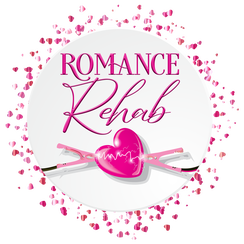|
Few marketing tasks are as universally hated among writers as query letter writing. After all, you’ve written a 70,000+ word novel and you’re supposed to boil it down to a few paragraphs of sales copy designed to seduce an agent into reading your work? Oh and a typical literary agent has hundreds, if not thousands, of letters from other authors, all of whom are trying to do the exact same thing. Yep. That about sums it up. Sorry. While query letters can vary depending on the agent (and his/her specific guidelines) and the genre of your book, there are many elements that are universal to all successful query letters. Those elements include: Personalization
The Hook No, we’re not referring to the Blues Traveler song of the same title. We’re referring to the meat of your story, a roughly 100-250-word summary. Write it like you would write blurb copy for the back of your novel. It should be enticing and written in the same unique “voice” you use in your novel. Bio (optional) Include any previous publishing credits or awards you might have at the end of the letter. This would be a good place to mention that you’re a multi-published, NYT-bestselling author. Or that you’re close, personal friends with Stephen King, who is willing to blurb your novel when it’s published. But if none of that is true, and you don’t have any other impressive, relevant writing credits (the time you won the first grade young author’s award for your short story about Frogger doesn’t count), you can skip the bio. The Closing Wrap up your query letter with a simple thank you. Don’t gush or beg. Have some dignity, and stick with something super-simple like “Thank you for your time and consideration.” Include your contact information (phone # and email address) under your name in the signature line. That’s great, you say, but this all seems easier said than done. We’re not gonna lie: it’s not easy to entice an agent to read your work. But it’s not impossible, either. How to start Unless you are being referred to an agent by one of his/her existing clients, or you met the agent at a conference or event, we recommend starting your query letter with your hook. Some writers have also had success with the less sexy but still effective direct approach (something like: I’m seeking representation for my book, [Title], a 65,000-word paranormal romance novel.) How to write an effective hook
The hook should include:
Overall, in a hook, less is more. Choose your words carefully, and if a word isn’t absolutely necessary, eliminate it. What shouldn't be in a bio If you decide to include a bio, only include what’s listed above. Don’t include:
What should be in your closing Other than the polite “thank you for your time and consideration,” here’s what you should and shouldn’t include:
Random other stuff Other general things to keep in mind:
For examples of successful queries (and some not so successful), check out Writer’s Digest and Query Shark. How about you? Have a question or query story you’d like to share? We’d love to hear from you! |
|
ROMANCE AUTHOR SERVICES
Romance novel blurb help Romance Remedy program Referral program Romance author services
|
FREE Romance Rehab newsletter: Subscribe here
KnockinBooks LLC is a participant in the Amazon Services LLC Associates Program, an affiliate advertising program designed to provide a means for sites to earn advertising fees by advertising and linking to Amazon.com.
© 2020 KnockinBooks LLC



 RSS Feed
RSS Feed
